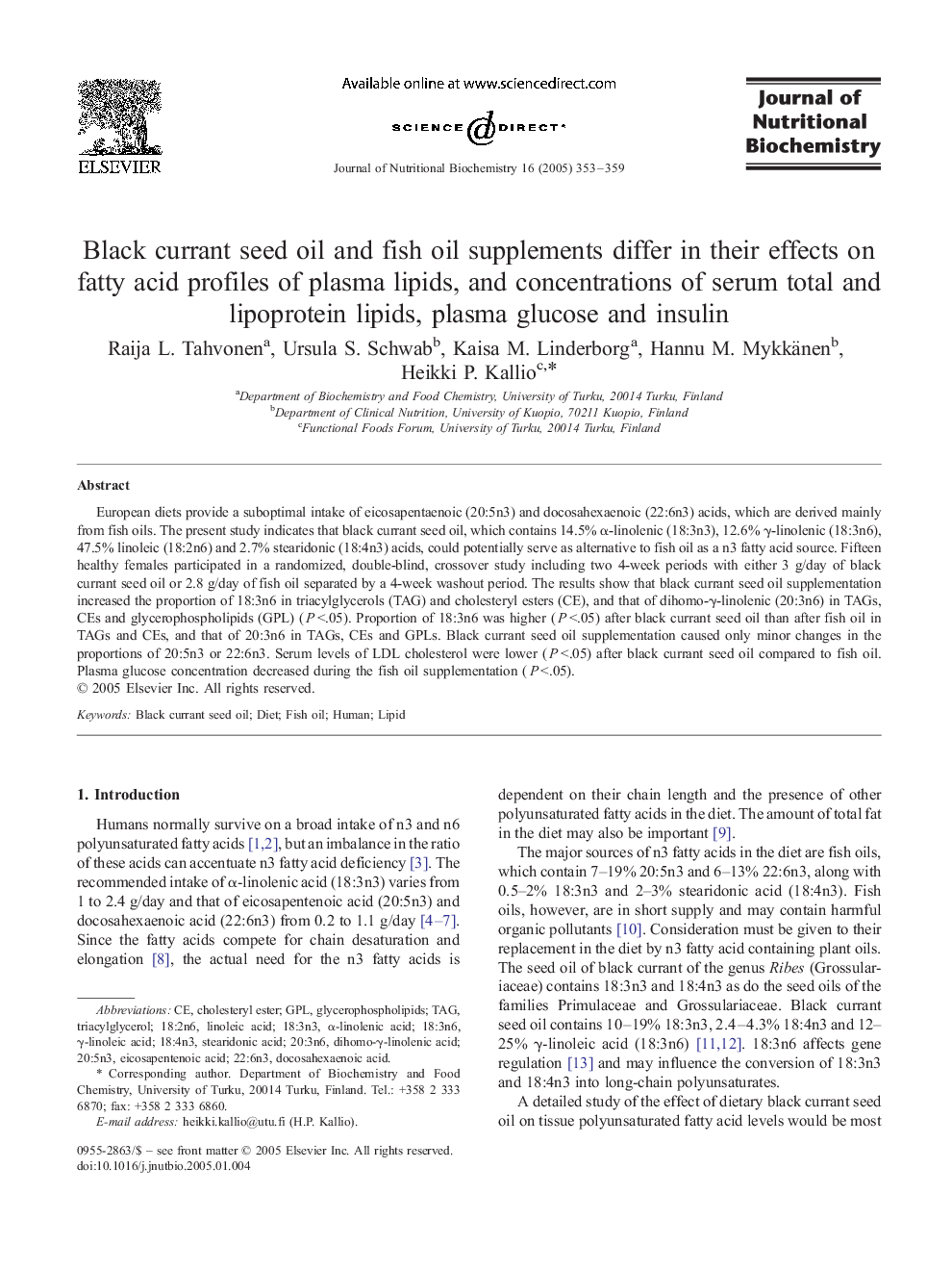| Article ID | Journal | Published Year | Pages | File Type |
|---|---|---|---|---|
| 9891563 | The Journal of Nutritional Biochemistry | 2005 | 7 Pages |
Abstract
European diets provide a suboptimal intake of eicosapentaenoic (20:5n3) and docosahexaenoic (22:6n3) acids, which are derived mainly from fish oils. The present study indicates that black currant seed oil, which contains 14.5% α-linolenic (18:3n3), 12.6% γ-linolenic (18:3n6), 47.5% linoleic (18:2n6) and 2.7% stearidonic (18:4n3) acids, could potentially serve as alternative to fish oil as a n3 fatty acid source. Fifteen healthy females participated in a randomized, double-blind, crossover study including two 4-week periods with either 3 g/day of black currant seed oil or 2.8 g/day of fish oil separated by a 4-week washout period. The results show that black currant seed oil supplementation increased the proportion of 18:3n6 in triacylglycerols (TAG) and cholesteryl esters (CE), and that of dihomo-γ-linolenic (20:3n6) in TAGs, CEs and glycerophospholipids (GPL) (P<.05). Proportion of 18:3n6 was higher (P<.05) after black currant seed oil than after fish oil in TAGs and CEs, and that of 20:3n6 in TAGs, CEs and GPLs. Black currant seed oil supplementation caused only minor changes in the proportions of 20:5n3 or 22:6n3. Serum levels of LDL cholesterol were lower (P<.05) after black currant seed oil compared to fish oil. Plasma glucose concentration decreased during the fish oil supplementation (P<.05).
Keywords
Related Topics
Life Sciences
Biochemistry, Genetics and Molecular Biology
Biochemistry
Authors
Raija L. Tahvonen, Ursula S. Schwab, Kaisa M. Linderborg, Hannu M. Mykkänen, Heikki P. Kallio,
